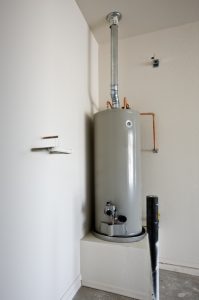 You’ve probably heard the term “hard water” before. This may sound a bit frightening in regard to your water quality, but it’s really not so bad for you. Hard water means that the water supply has an excess of calcium and magnesium, and for most people, this is perfectly safe to ingest. While it’s safe for people, however, we cannot say the same for your plumbing.
You’ve probably heard the term “hard water” before. This may sound a bit frightening in regard to your water quality, but it’s really not so bad for you. Hard water means that the water supply has an excess of calcium and magnesium, and for most people, this is perfectly safe to ingest. While it’s safe for people, however, we cannot say the same for your plumbing.
Scaling—the deposits that get left behind from hard water—can affect your water heater worse than any other part of your plumbing. While you can clean scale out of a faucet with a wrench and some vinegar, it’s not so easy when it comes to your water heater.
How Deposits Get Left Behind
Have you ever noticed a flaky white, green, or yellow buildup around the faucet handle or the drain? This is the result of scaling—the deposits that get left behind thanks to hard water. These minerals simply do not drain away as easily as water does, and they can cling to a metal surface even as water rushes through.
That’s how mineral deposits get lodged in the pipes—including those leading into and out of your water heater—and at the bottom of the water heater tank.
The Damage of Scaling
Scaling affects your water heater in a number of ways. For one thing, buildup can develop in the pipes and effectively block water from moving through if it develops a thick enough layer of mineral deposits.
More commonly noticed, though, is the damage that occurs to the water heater tank. Minerals build at the bottom of the tank and make it difficult to heat water evenly. Decreased efficiency results and pressure levels in the tank become unbalanced. What’s worse is that the minerals rattle around at the bottom of the tank and may force it to corrode through.
Signs of Scale
Perhaps the most obvious sign that scale is affecting your water heater is the sound it makes when it rattles in the tank, often described as a popping or a knocking. This occurs as steam bubbles attempt to escape past the layer of sediment at the bottom of the tank.
Scaling can also affect the temperature of the water. This is especially true with tankless water heaters, as the deposits coat the heat exchanger and make it more difficult for water to pick up the heat.
You might also notice low hot water pressure if scaling is clogging up the pipes that lead out of your water heater.
What You Can Do
There are a few possible approaches to treating scaling in water heaters. One is a whole-house water filter, although this may not be as effective as you would hope against hard water minerals. For better elimination of mineral ions, a whole-house water softener is the best protection—trading out hard water ions for salt.
You can and should also have professional plumbers maintain your water heater once or twice a year, depending on how serious a hard water problem you have. Technicians can inspect and fine-tune the water heater and flush out minerals that may damage your tank.
For some of the best plumbers in Clifton, NJ, contact MarGo Plumbing Heating Cooling Inc.
